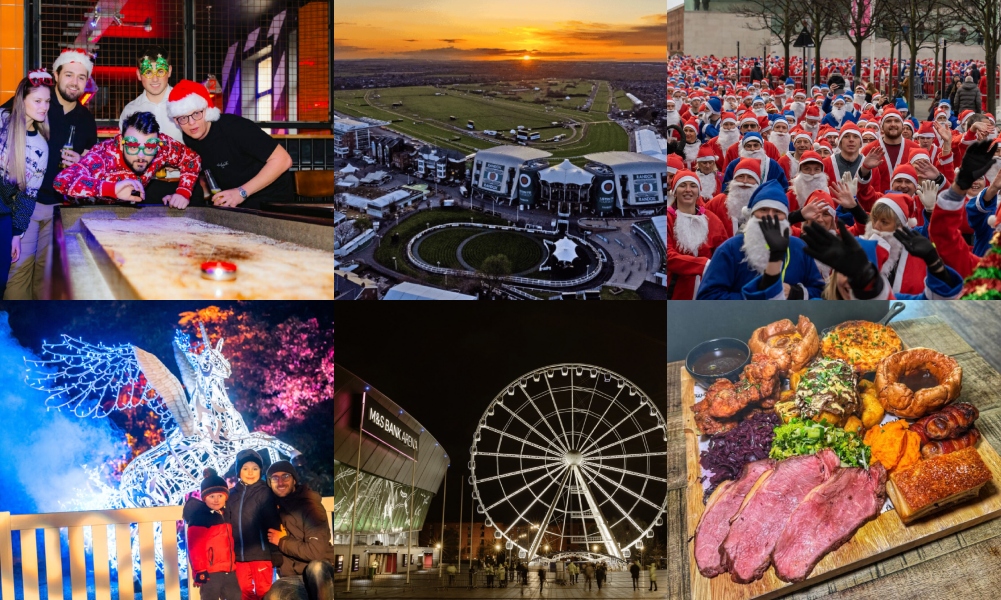
Features
Maghull woman donates stem cells to stranger to ‘pay it forward’ after her mum’s cancer recovery
1 year ago
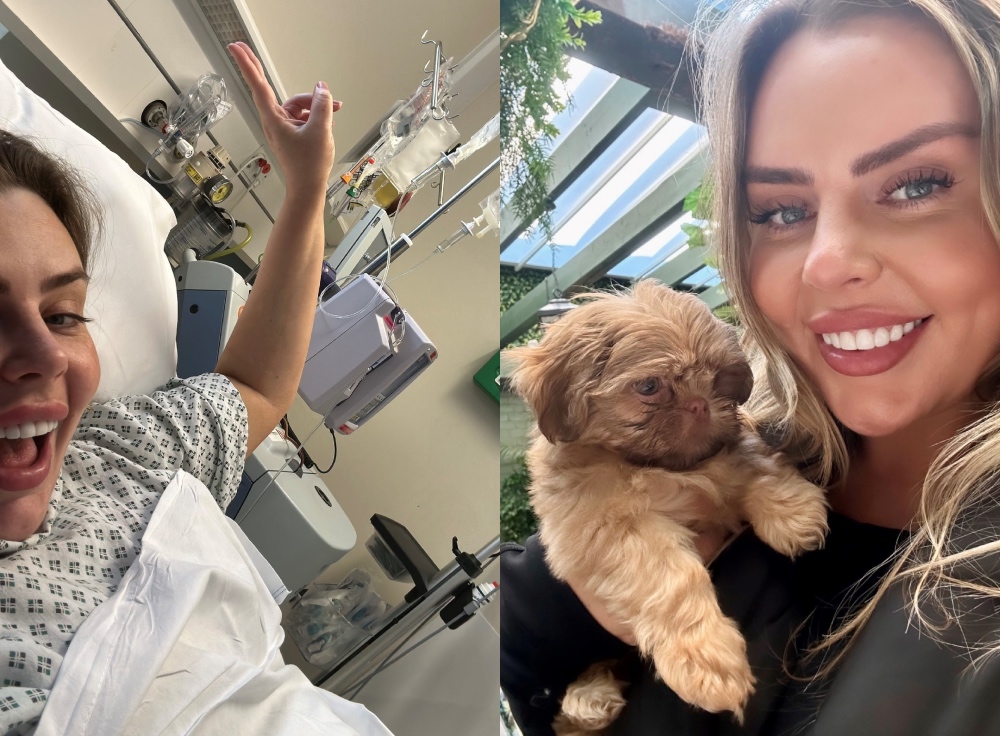
A beauty therapist from Maghull who donated stem cells to a stranger in America has said it was her way of ‘paying it forward’ after her own mum’s recovery from cancer.
Sarah LeGuen, 32, says:
“I saw donating stem cells as a way of me saying thank you to the universe for my own mum who is now fit and well after having ovarian cancer.
“My mum is my best friend and when she was diagnosed in May last year, I couldn’t imagine how my life would go on.
“The person in the US who received my stem cells to help treat blood cancer was a woman in her 60s or 70s, around the same age as my mum, so to think I have potentially saved her life or given her more time with her family is amazing.”
“I would do it again tomorrow. The procedure is straight-forward and painless, and I was only in hospital for a day.
“It’s a lovely feeling to know you’ve given someone a second chance at life. And I would hope anyone in my situation would do the same.”
Sarah, who owns Blush Studio in Aintree, signed up with blood cancer charity DKMS nine years ago after a recruitment drive for donors to help a young child from Liverpool who was ill.
“I can’t even remember the person’s name,” admits Sarah, “but they needed to find a stem cell match, so I went to a school in Litherland where they took a simple swab from my mouth and put my details on the register. I wanted to do my bit.
“I wasn’t a match for that child and, if I’m honest, I never expected to get a call ever. But in October last year I got a text to say I was a potential match for an international patient. I almost didn’t want to get my hopes up in case they came back to say it wouldn’t be me.
“When they did come back to say I was a match there was no doubt in my mind; no question that, given the chance to save someone’s life or help them, I wouldn’t do it.”
The stem cell transplant was supposed to take place in January but was delayed because the recipient was too unwell for the operation to go ahead.
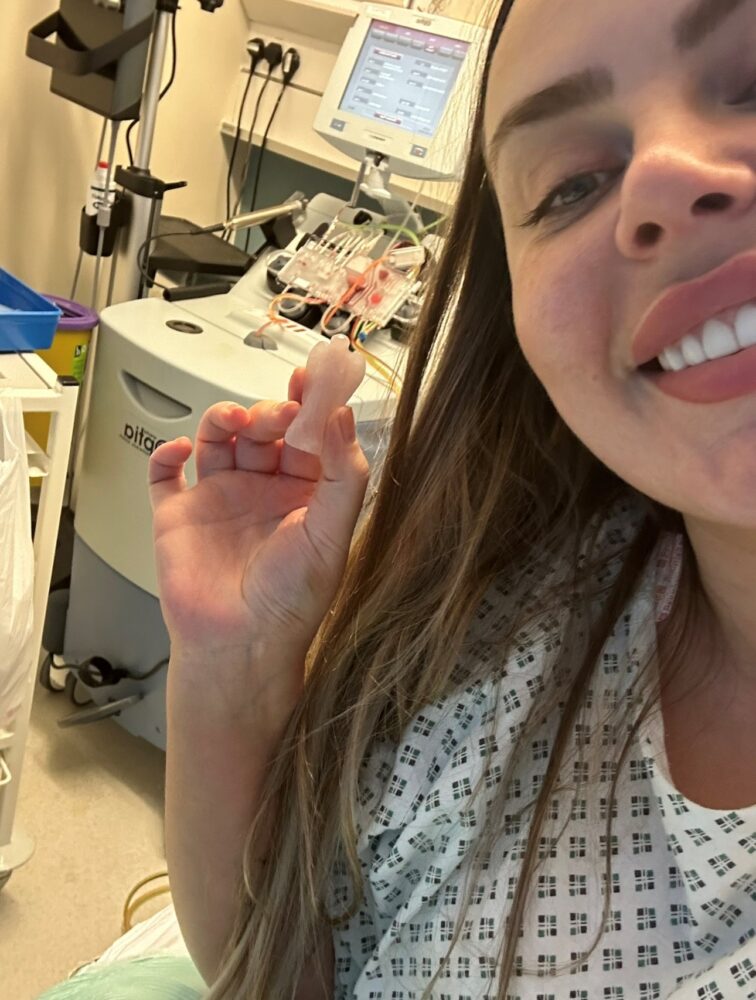
But in May Sarah got the call to say it was back on:
“I went to The Christie Hospital in Manchester where they took my blood and extracted the stem cells before putting it back in me.
“They managed to get five million stem cells which was the minimum the woman needed, and they were flown still fresh – they’re normally frozen – to America from Manchester Airport.
“The procedure was quick and painless. I just felt a bit rough for a few weeks afterwards until my blood got back to normal.
“I also felt very emotional but, again, they said that was quite common because of having had so much blood taken – and I guess because of what I’d done, especially when it hit so close to home because of my mum. I imagined it would be someone younger, not someone like her.”
Sarah’s mum, Debbie, 60, was diagnosed with ovarian cancer early last year and underwent a full hysterectomy and appendectomy at the Women’s Hospital in Liverpool.
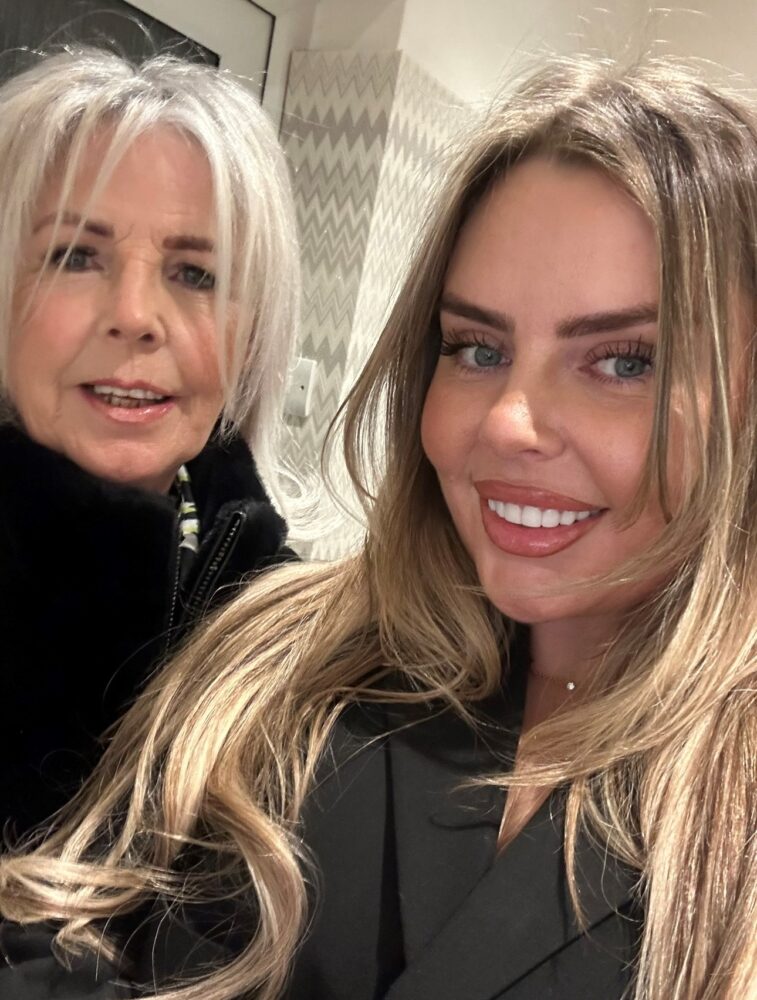
“When mum was diagnosed with cancer, I was absolutely devastated. I know everyone loves their mum, but I still live at home and my mum is my best friend. I felt my life ended without her.
“When we found out, I’m not religious, but I prayed and prayed and prayed, every night, that she would be okay, and I said I’d do anything for her to be well.
“When surgeons operated, they found a 20cm tumour – but incredibly it hadn’t spread anywhere else so they were able to totally remove it, and now mum is completely healthy. It’s our miracle.
“That’s why I felt donating my stem cells was a way of me saying thank you for my mum pulling through, a way for me to pay it forward.”
And she adds: “They have asked if I will donate my cells again if the recipient needs another transplant within the next two years and I have said absolutely, yes.
“My sister Laura, 35, had a baby boy, William, in May last year and so my mum has been able to hold her first grandchild. And if my patient, the recipient, has a grandchild or grandchildren I want her to be able to hold them too.
“I’d ask other people to join the stem cell register. The more who are on it, the more people can potentially be saved.”




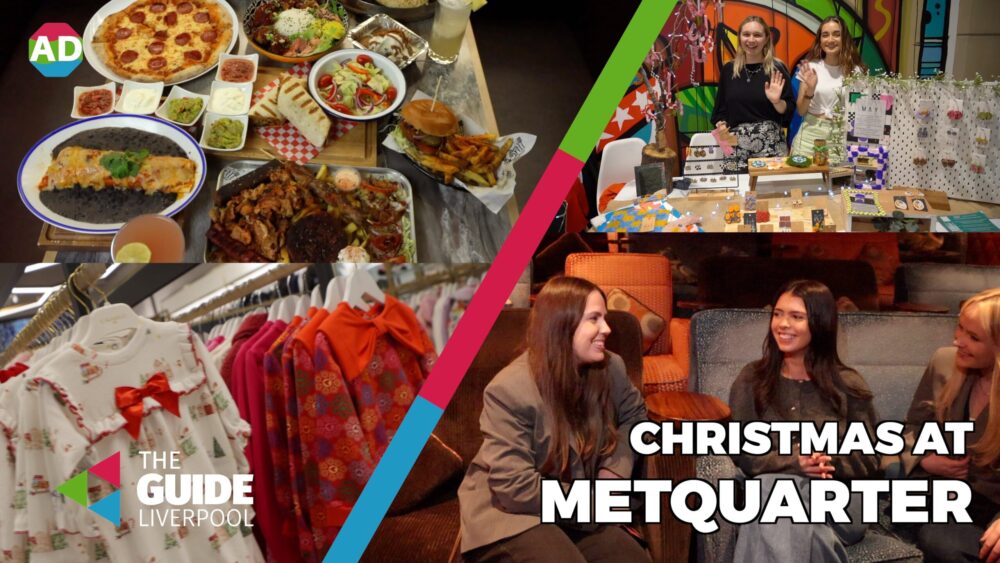
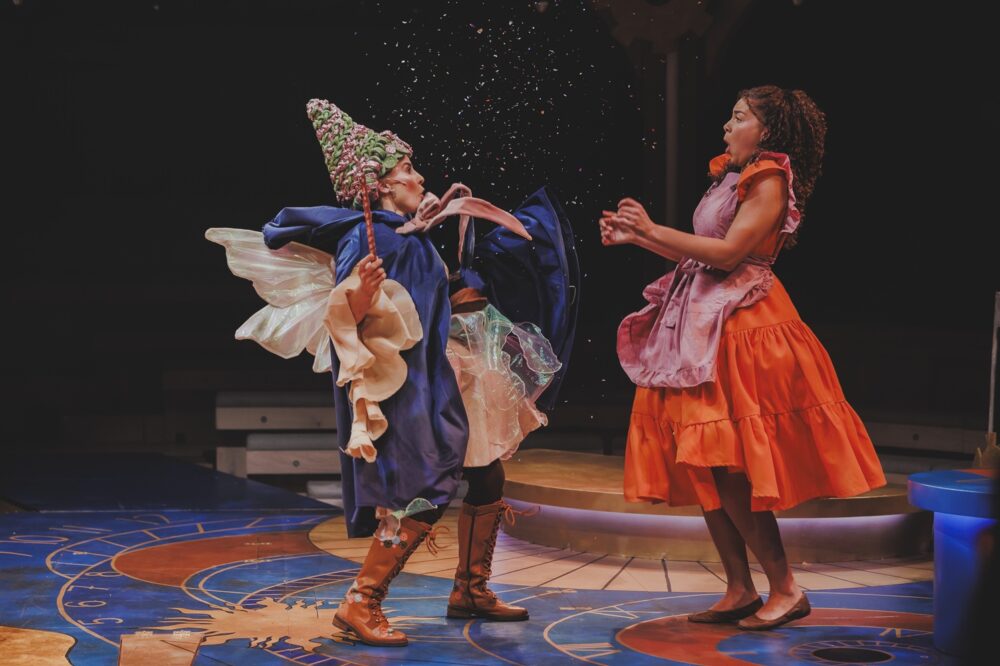
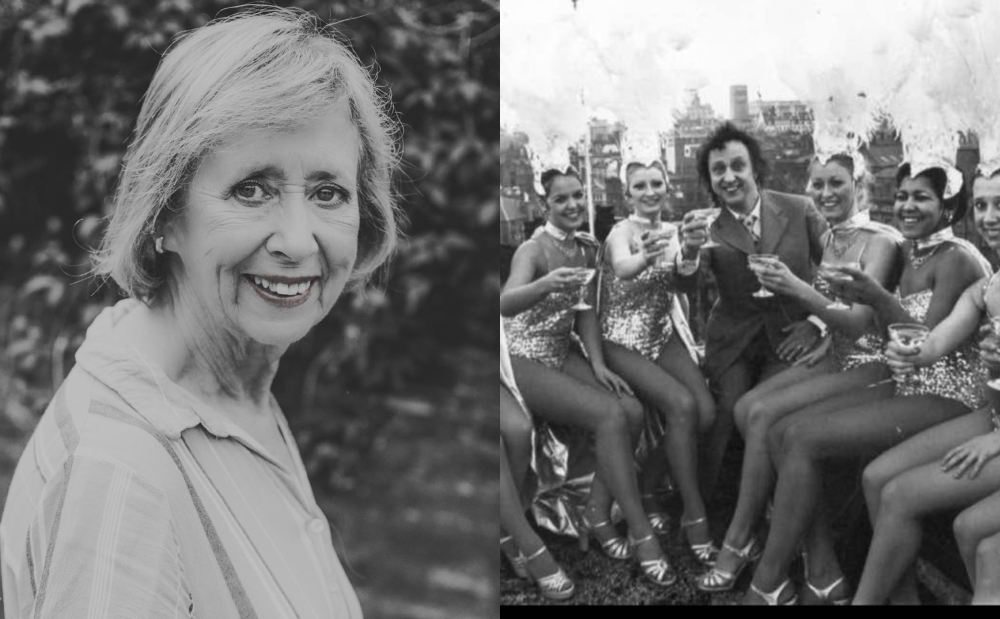
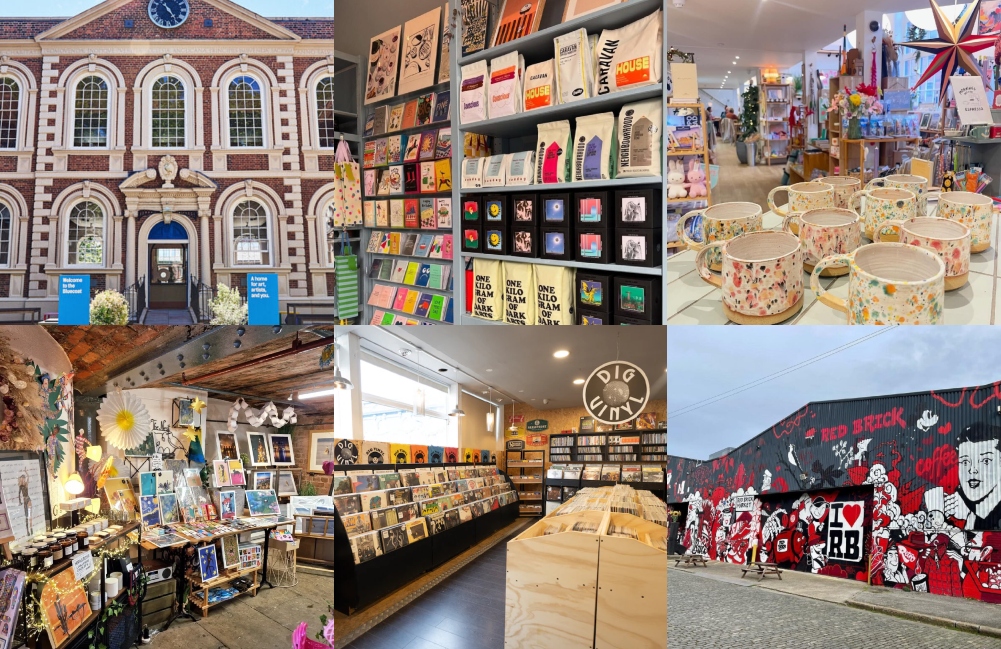
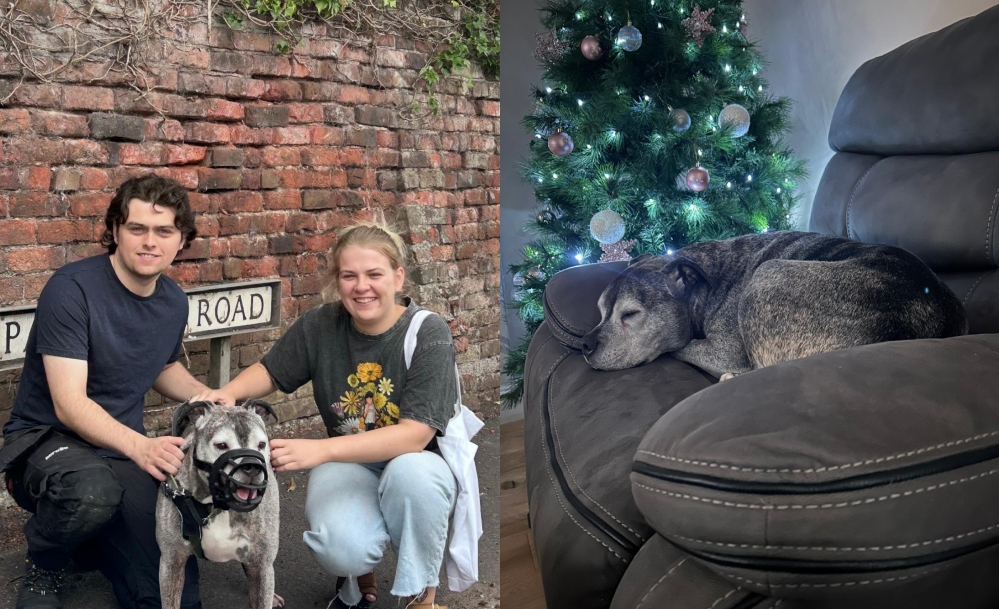
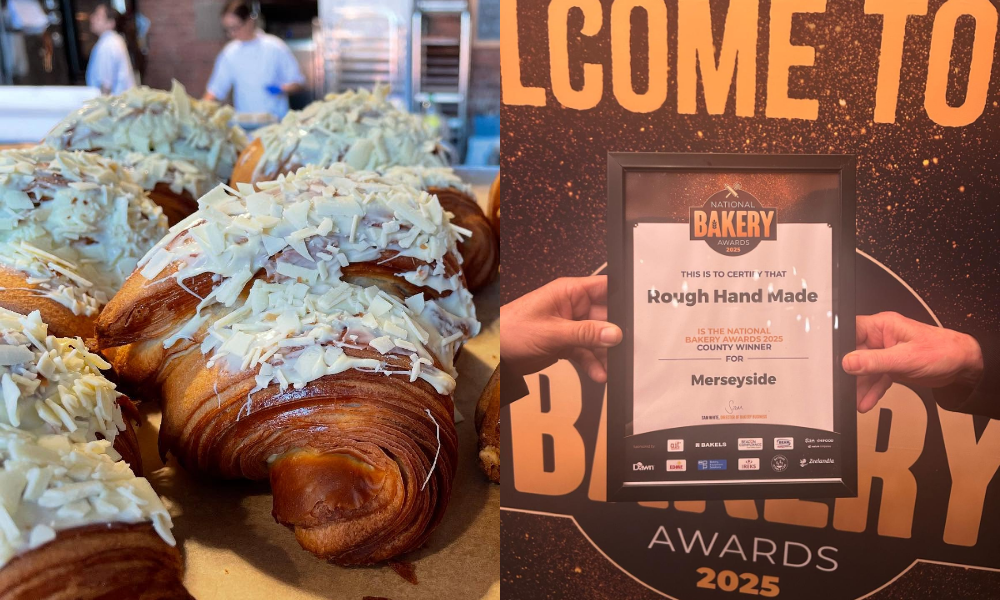
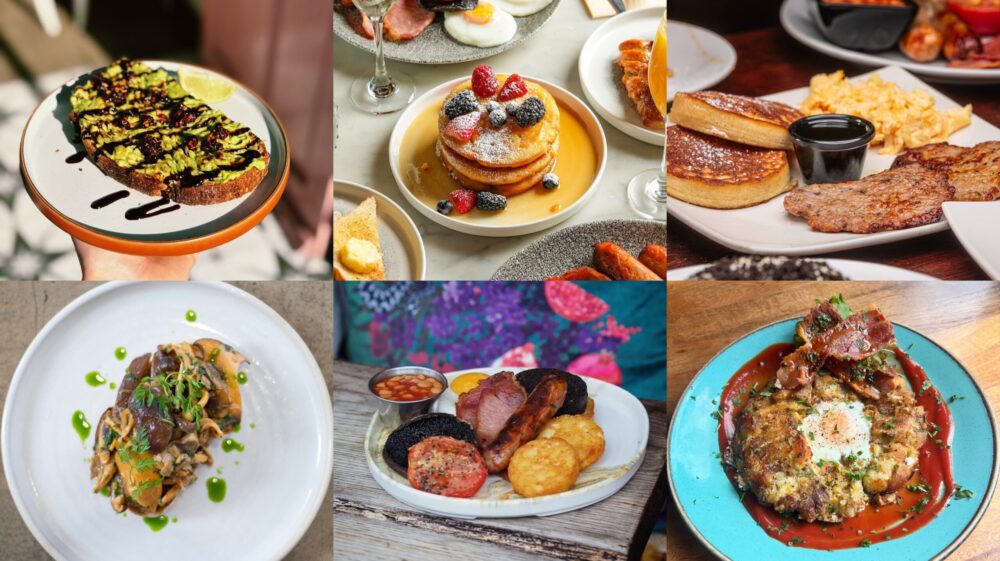
 Subscribe
Subscribe Follow Us
Follow Us Follow Us
Follow Us Follow Us
Follow Us Follow Us
Follow Us











